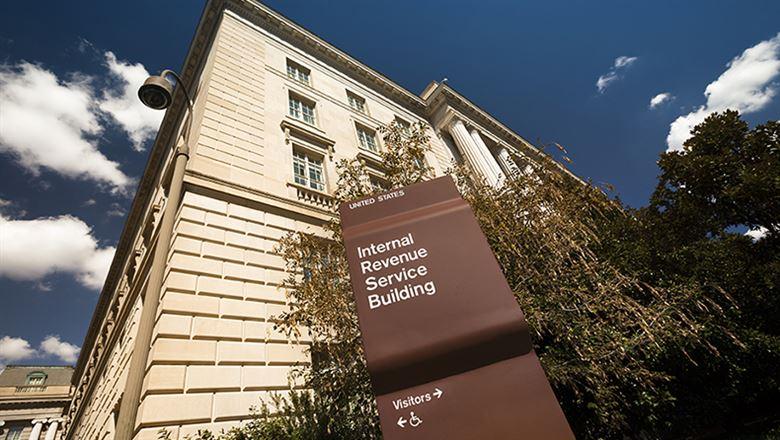Maame Nyamekye
Maame Nyamekye is an associate within the Nonprofit Organizations and Associations Group at Whiteford, Taylor and Preston, LLP.

Several legislative and regulatory developments that emerged in 2019 reshaped the legal landscape for associations. Here’s a brief overview of six important changes.
While congressional activity dominated the headlines in 2019, nonprofit professionals may have missed some notable changes to the legal landscape affecting their organizations. From the Taxpayer First Act to IRS Form 990 filing requirements to employee compensation, several legal developments are changing the way associations and other nonprofits operate.
To remain in compliance, associations need to be aware of these six important legal developments from the past year.
Previously, only certain tax-exempt organizations were required to file their Form 990 returns electronically. Under Section 3101 of the Taxpayer First Act, all tax-exempt organizations will eventually need to do so. This includes the Form 990-T unrelated business income tax returns, if applicable. All Form 990s will be made available to the public through the IRS website. This new requirement takes effect for taxable years after July 1, 2019.
As such, a tax-exempt organization with a fiscal year starting after July 1, 2019, is not required to electronically file its FY2019 annual return. However, the organization must file electronically its annual return for FY 2020. Under certain conditions, the act does permit a delay to mandatory e-file for organizations.
Also effective July 1, 2019, Section 3102 of the Taxpayer First Act requires the IRS to issue a notice informing a tax-exempt organization of its failure to file Form 990s for two consecutive years and the possibility of automatic revocation of tax-exempt status if it fails to file for a third consecutive year. Of course, organizations should comply with the IRS’s filing requirements, but they also should ensure that their information is current with the IRS to avoid missing such notices.
In July 2018, the IRS issued Revenue Procedure 2018-38, which allowed 501(c)(6) organizations, as well as many other types of tax-exempt organizations, to cease disclosing their large donors ($5,000 or more) on the Form 990. That procedure was challenged by the attorneys general of Montana and New Jersey in the case of Bullock v. Internal Revenue Service.
In July 2019 a federal district court judge set aside the procedure, finding that IRS should have obtained greater public input through a proper notice and comment period. On September 6, 2019, the agency issued new proposed guidelines for public comment, as well as IRS Notice 2019-47 providing guidance to nonprofit organizations that had already filed their 2018 Form 990 before the court ruling and did not disclose donor information.
Currently, all tax-exempt 501(c)(6) associations will need to revert to providing donor names and addresses on their IRS Form 990, Schedule B. The exception is that associations with unfiled IRS Forms 990 and 990-EZ for any taxable year ending between December 31, 2018, and July 30, 2019 (inclusive of those dates) may reasonably rely on IRS Notice 2019-47 to withhold donor information for that specific return.
Previously, only certain tax-exempt organizations were required to file their Form 990 returns electronically. Under the Taxpayer First Act, all tax-exempt organizations will eventually need to do so.
In September 2019, the U.S. Department of Labor issued its final overtime exemption rules, raising the minimum salary threshold required to qualify for exemption from the Fair Labor Standards Act (FLSA) to $35,568 per year, or $684 per week. In addition, the new rules raised the salary threshold required for exemption of highly compensated workers from $100,000 to $107,432.
Under these rules, associations with employees who may be exempt under Section 13(a)(1) of the FLSA will need to make sure that their current salary meets the new threshold level of $35,568 per year. Any employee who receives less than that annual salary will not be eligible for the exemption as of January 1, 2020. If changes are needed to an employee’s compensation, they should be made before that date.
Like many new regulations, these new rules may be challenged in court, but they are not expected to be overturned, and it is advisable for all employers to be in full compliance as of January 1, 2020.
Also this year, the District of Columbia established a requirement that all DC nonprofit organizations exempt from DC franchise, sales and use, and property tax must reapply for exemption every five years. The DC Office of Tax and Revenue began expiring tax exemptions for organizations that have reached the five year mark. Those organizations will need to reapply to avoid being reclassified as fully taxable. Your organization may have received a notice from the District of Columbia informing you of the requirement to reapply. If so, or if you believe that your organization’s exemption exceeds five years, the organization must complete the required paperwork to reapply for exemption.
In case you missed it, in February 2018, the IRS made it easier for a tax-exempt organization to make certain changes to its legal structure or state of incorporation while still maintaining its tax-exempt status. According to Revenue Procedure 2018-15, the IRS will no longer require an organization to reapply for tax exemption if it undergoes a corporate reorganization (for example, a merger or consolidation or a reincorporation in another state). However, the change is subject to conditions and exceptions, and any organization undergoing a corporate reorganization should consult with legal counsel to review the guidance.